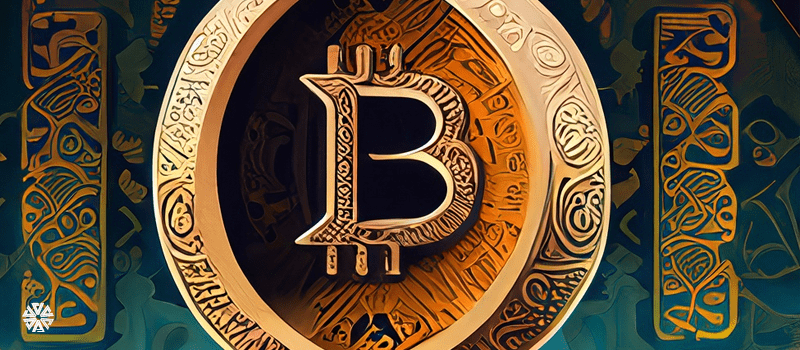Are Credit Cards Haram
Are Credit Cards Haram
Most Muslims in the developed world use them, but are credit cards haram or halal? Lets find out.
As one Islamic scholar states:
“Many Muslims hold credit cards and feel no qualms about paying the interest that incurs.” Source
The Islamic community has an ongoing debate about whether credit cards are haram (forbidden) according to Islamic law. This article will examine the arguments on both sides of this issue.
The key principles in question are:
- Riba – charging interest
- Gharar – excessive uncertainty/risk
Both are prohibited in Islam. So are credit cards, which charge interest, considered riba and therefore haram? Or can they be halal if used carefully? This article will analyze from both perspectives.
Background on Islamic Finance Principles
Brief explanation of riba
Riba refers to the charging of interest, which is prohibited in Islam according to verses in the Quran:
“Those who charge riba (interest) are in the same position as those controlled by the devil’s influence.” Source
Charging interest on loans is considered exploitative and morally corrupt.
Brief explanation of gharar
Gharar refers to excessive uncertainty or risk in a contract or transaction. Islam prohibits gharar because it leads to disputes and injustice.
“Gharar exists in contracts where details about the sale item are unknown or uncertain.” Source
Going into debt through loans with unclear terms is risky and disliked in Islam.
Arguments That Credit Cards Are Haram
Credit cards charge interest, which is riba.
- Credit cards have high interest rates up to 25% or more.
- This interest accrues if you carry a balance month to month.
“The interest rate is strictly prohibited in Islam. It falls under the category of Riba.” Source
Credit cards encourage reckless spending beyond one’s means, which causes debt. Going into debt is risky, so there is gharar.
- Credit cards make it easy to spend more than you have.
- This can lead to accumulating interest-accruing debt.
- Taking on debt without knowing if you can repay it is risky.
“Using credit to purchase things you can’t afford is not recommended in Islam because of the element of uncertainty (gharar) involved.” Source.)
Credit card companies earn money through interest, so using their services supports a haram system.
- Credit card business models rely on customers not paying off balances.
- By using their cards, you enable riba-based lending even if you avoid interest yourself.
“It is true that the credit card companies benefit from customers who do not pay off their balances.” Source
Arguments That Credit Cards Are Halal
Credit cards themselves are just a financial tool, not inherently good or bad. It’s how you use them that matters.
- Cards don’t force anyone into debt – it is a choice.
- If used responsibly, they can help build credit and provide convenience.
“A credit card is merely a method of payment, which is permissible in Shari’ah. The card itself is neither halal, nor haram.” Source
If paid off in full every month, there is no interest.
- You can avoid riba by paying off statements on time.
- Many cards have a grace period to pay with no interest.
“If an individual makes sure to pay off his or her balance in full, then there is no interest involved.” Source
Allows convenience of online purchases, hotel bookings, etc.
- Credit cards are widely accepted online and enable e-commerce.
- They also facilitate travel like booking hotels or rental cars.
“In today’s world, it is very difficult to make hotel or flight reservations without one.” Source
Cards that offer rewards can be profitable for careful users.
- Many cards offer cash back, points, or miles on purchases.
- If used responsibly, these rewards are like getting free money.
“One may collect rewards such as airline mileage points and this is permitted.” Source
Some cards don’t charge interest, just fees.
- There are Islamic credit cards that avoid riba.
- They charge annual or transaction fees instead of interest.
“The credit card must avoid riba completely and instead charge administrative or service fees.” Source
Having a credit card builds your credit score.
- Making on-time payments shows lenders you can handle credit responsibly.
- A good credit score makes it easier to get financing for major purchases like a home.
“Using a credit card responsibly and paying it off on time helps build your credit profile.” Source
Credit cards provide protections and conveniences.
- You can dispute fraudulent charges or get assistance if something goes wrong with a purchase.
- Lost cards can be frozen and replaced quickly.
“There are also benefits in the protections and fraud prevention that come with credit cards.” Source
Islamic Credit Card Alternatives
For Muslims who want to avoid riba completely, there are some Sharia-compliant credit card options:
Overview of Sharia-compliant credit cards
- Offered by Islamic banks and halal fintech startups
- Avoid interest through fees instead
- Require payment in full each month
- Screen transactions to filter out haram merchants
“Sharia-compliant cards work to ensure no interest is charged and only halal transactions are permitted.” Source.)
Example cards
| Card | Features |
|---|---|
| ABC Islamic Credit Card |
|
| Wahed Credit Card |
|
“The ABC and Wahed credit cards are two examples of Sharia-compliant card options.” Source
These allow Muslims to utilize the benefits of credit cards without riba.
Conclusion
Summary of key arguments
There are reasonable points on both sides of whether conventional credit cards are halal or haram:
Arguments they are haram:
- Interest charges are riba
- Can lead to excessive debt
- Support riba-based business models
Arguments they are halal:
- Tool not inherently good/bad
- Avoid riba with proper use
- Provide conveniences and benefits
Takeaway on avoiding haram
Muslims concerned with avoiding riba have a few options:
- Use conventional cards very carefully and pay off monthly
- Use Islamic credit cards with fees instead of interest
- Avoid cards and use cash/debit
“Muslims should balance the advantages and risks and make the choice that accords with their conscience.” Source
The key is understanding the Islamic principles and not going into riba-based debt, whether with credit cards or other loans.
Frequently Asked Questions: Are Credit Cards Haram?
Is it halal or haram to use credit cards?
The use of credit cards can be considered haram if they involve any form of interest charges. However, if used responsibly and in compliance with Islamic principles, credit cards can be considered halal.
Is it permissible to have a credit card in Islam?
Having a credit card in Islam can be permissible if it is used responsibly and does not involve any interest charges. It is important to choose a card from an Islamic bank or a card that follows Shariah guidelines.
What does the Quran say about credit cards?
The Quran does not specifically mention credit cards. However, it provides guidelines regarding interest (riba) and encourages Muslims to avoid engaging in transactions that involve riba.
Can I use a credit card if I pay the balance on time?
If you pay the balance on your credit card in full and on time, without incurring any interest charges, it may be permissible to use the card according to Islamic principles. However, it is recommended to consult with a knowledgeable Islamic scholar.
Are there any alternatives to credit cards in Islamic finance?
Yes, there are alternatives to credit cards in Islamic finance. Some options include debit cards, prepaid cards, and other forms of non-interest-bearing financial instruments.




Responses